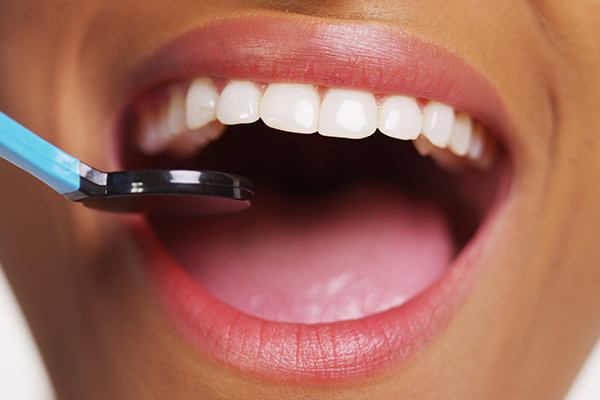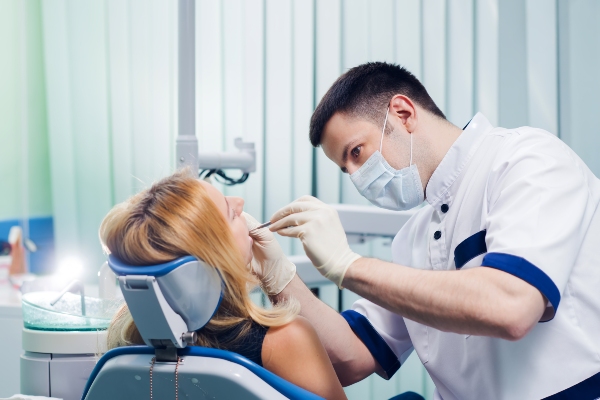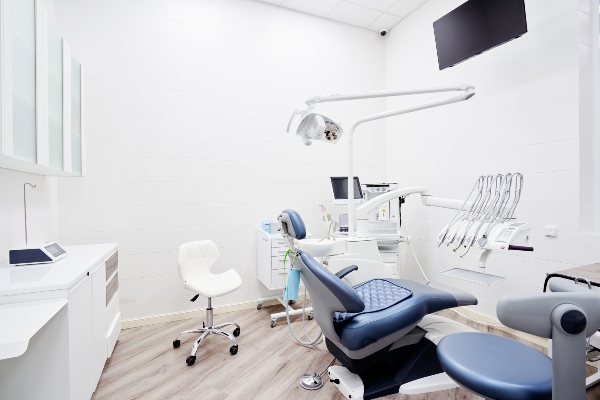FAQs About Laser Dentistry

Since laser dentistry is still relatively new, patients often have questions about the process. The use of lasers in dentistry is becoming popular because they allow precision and less-invasive treatment. To help patients understand the procedure, this article answers frequently asked questions.
What is a laser?
Dental lasers generate energy in a concentrated beam of light. The energy has different wavelengths depending on the desired effect and is absorbed by the target, which can be tooth decay, gum tissue, tooth enamel or whitening accelerators. Each material absorbs a unique wavelength of light and deflects others.
How is a dental laser different from a drill?
Dentists prefer dental lasers over drill for different reasons. The lasers used in laser dentistry are more efficient and produce faster results than a drill. It removes the need for anesthesia because patients experience less pain. Lasers can reduce bacteria levels and cause less damage to healthy tissues. The device allows for precise and safe periodontal treatment, thus ensuring faster healing time.
Is laser dentistry safe?
Laser dentistry is safe. When used according to the proper guidelines, dentists trained in the use of dental lasers can perform procedures safely. Dental lasers have been approved by the Food and Drug Administration.
What are the benefits of laser dentistry?
Lasers operate quietly without vibration or whining, a feature that might be helpful for patients with dental anxiety. Due to the minimal impact that they have on oral tissues, there is less bleeding and swelling afterward. There is also a lower risk of infection because the lasers decontaminate the affected part.
Are lasers painful?
The procedure itself is relatively painless, but the dentist may administer local anesthesia to keep the patient comfortable. There is usually slight discomfort after the treatment, but it is temporary and should stop in no time.
Heat and vibration are the major causes of the discomfort commonly associated with the dental drill. Laser dentistry sometimes uses laser energy in conjunction with air-water spray (a process known as Hydrophotonics) to complete different forms of dental procedures more comfortably. The reasons for this are that lasers cause reduced teeth sensitivity and do not generate heat and vibration.
What are the applications of laser dentistry?
Hard and soft tissue lasers are the two main types of lasers used in dentistry for procedures. Lasers can be used to remove decay from a tooth and prepare the enamel for a dental filling. The dentist can also use lasers to treat gum disease by breaking apart and removing plaque and tartar accumulation on the teeth and gums. It can also be used in cosmetic dental procedures to whiten the teeth and reshape the gums and teeth with precision.
In conclusion
The use of laser dentistry results in fewer cases of infection, a better healing process and faster recovery time. If you have additional questions about lasers and how they are used for periodontal disease treatment, contact the dental office to schedule a consultation. The dentist will let you know if it can be used as part of your treatment plan.
Request an appointment here: https://davisanddingle.com or call Davis & Dingle Family Dentistry at (803) 567-1804 for an appointment in our Columbia office.
Check out what others are saying about our services on Yelp: Read our Yelp reviews.
Recent Posts
Regular dental checkups are the key to good oral health, as they prevent potential dental problems before they become more serious. Visiting a dental practice not only helps maintain the health of the teeth and gums but also contributes to overall well-being. Knowing what to expect before visiting a dental practice for a routine checkup…
Teeth grinding, also known as bruxism, is a common problem seen in dental practices. In fact, many people have this condition and do not realize it because it tends to happen while sleeping. Over time, this habit can damage teeth, cause jaw pain, and lead to other problems, making getting the right treatment crucial.Even though…
A preventive dentist is a trusted partner in maintaining your oral health and preventing serious dental issues before they occur. This dental professional emphasizes regular care and education, supporting long-term wellness and reducing the need for extensive procedures. As the cornerstone of modern dental care, preventive dentistry underscores early detection, regular visits, and informed patients.A…
Dental practices continue to serve as reliable sources of information for individuals seeking to maintain optimal oral health. However, myths often cloud the decision-making process related to daily care, recommended procedures, and overall dental well-being. Davis & Dingle Family Dentistry seeks to debunk the five most common dental myths to help people regain control over…


